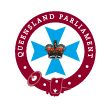Members of Parliament enjoy a unique privilege of freedom of speech, derived from Article 9 of the Bill of Rights 1688. Article 9 states that:
… the freedom of speech and debates or proceedings in Parliament ought not to be impeached or questioned in any court or place out of Parliament.
Effectively, this means that in the interests of public and open debate, Members can speak in the Assembly about matters without fear of any legal proceedings, such as defamation, being brought against them. This absolute privilege is essential for the effective operation of Parliament, but may lead to adverse comments being made in the Assembly about persons or corporations.
The Parliament’s Citizen’s Right of Reply procedure gives people an opportunity to respond to such comments and to ask for a response to be incorporated into the Record of Proceedings of the Assembly–see Chapter 46 of the Standing Rules and Orders of the Legislative Assembly at Standing Rules & Orders (pdf)
Making a request
A person or corporation, who has been referred to by name, or in such way as to be readily identified, in the Assembly may make a submission in writing to the Speaker requesting that an appropriate response be incorporated into the Record of Proceedings:
The Speaker
Queensland Parliament
Parliament House
George Street
Brisbane Qld 4000
Submissions should be clear and concise. Submissions should also state how the person or corporation has been adversely affected by the statement or how their privacy has been unreasonably invaded.
A submission must be received by the Speaker within four years from the date on which the person has been adversely referred to in the Legislative Assembly or a committee.
Public servants seeking a Citizen’s Right of Reply must do so as private citizens.
Speaker’s role
The Speaker will consider the submission and may refer it to the Ethics Committee, if he or she is satisfied that:
- the subject of the submission is not so obviously trivial or frivolous, vexatious or offensive as to make it inappropriate for referral; and
- it is practicable for the Ethics Committee to consider the submission.
Ethics Committee’s role
The Ethics Committee may decide not to consider a submission, if it considers that the subject of the submission is not sufficiently serious or is frivolous, vexatious or offensive. If the Ethics Committee decides not to consider a submission, it must report its decision to the Assembly.
If the Ethics Committee decides to consider a submission, it may contact the person or corporation who made the submission and any Member who referred to that person or corporation in the Assembly. It is important to note that in considering a submission, it is not the Ethics Committee’s role to consider or judge the truth of any statements made in the Assembly or the submission.
If a person making a submission does not respond to a communication from the Ethics Committee within three months, the committee may consider the matter to be closed.
Report of the Committee
The Ethics Committee is required to report to the Assembly on the submissions it considers. In its report, the committee must recommend that:
- a response, agreed to by the person or corporation and the Ethics Committee, be incorporated into the Record of Proceedings or published in some other manner, for example in a Parliamentary Committee Report; or
- the committee and the House take no further action in relation to the matter.
Terms of response
A response must be succinct and strictly relevant to the question in issue. A response must not be offensive or contain any matter which would unreasonably adversely affect or injure a person or corporation or unreasonably invade a person’s privacy. A response must also not unreasonably add to or aggravate any adverse effect, injury or invasion of privacy suffered by a person or corporation.
It is incumbent upon the person or corporation who made the submission to ensure the accuracy of their response. A deliberately misleading statement to the Ethics Committee may be treated as a contempt of Parliament.
A person making their submission through a representative must personally sign the response.
Further information
Further information about the Citizen’s Right of Reply process is available from the Ethics Committee:
Parliament House, Brisbane, 4000
Ethics@parliament.qld.gov.au
www.parliament.qld.gov.au/committees
Phone: 07 355 36610
